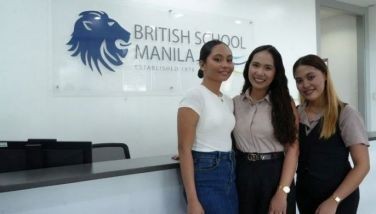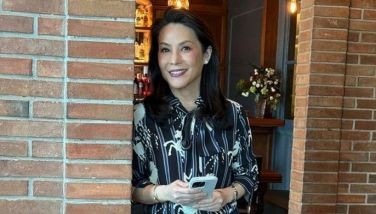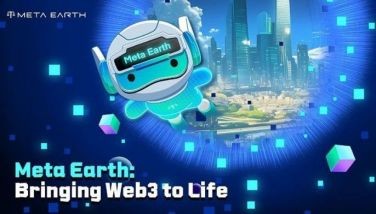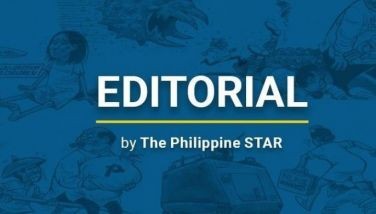The Door I Came In
December 15, 2014 | 12:00am
Edward Said, the prominent Palestinian thinker, once wrote about the need to give an inventory of one's life as a prelude to critically engaging the world. Since this is my first column, I thought I would try to follow his advice.
You might say I was born with politics in my blood. My mother, Leticia Ramos Shahani, was a two-term Senator during the post-EDSA regime of Cory Aquino. My uncle, Fidel V. Ramos, after serving under, and breaking away from, the Marcos dictatorship, became President of the Philippines from 1992-98. Their father, Narciso Ramos, had been a Congressman from Pangasinan who became one of the founders of the Liberal Party; he went on to become the first Secretary of Foreign Affairs in 1965. My brother Ranjit, at a very young age, became Vice-Governor and Congressman in Pangasinan, where he still holds office as a provincial Board Member. A stone's throw away, the Marcoses of Batac are second cousins, although family relations have remained tenuous and often critical.
Educated in the public schools of Pangasinan, my mother went on to Wellesley and Columbia and eventually to France to do her doctorate at the Sorbonne as a scholar of the French government. There she met my father, Ranjee Shahani, whose family hailed from what is now modern-day Pakistan. In England, my father went to Cambridge, where he met and befriended the likes of T.S. Eliot, Morarji Desai and Jawaharlal Nehru.
My father courted my mother for well over ten years. When my mother finally said yes, my parents were faced with the dilemma of where they would live and begin a family. My father, also a Sorbonne PhD, did not like the idea of moving to Manila, which he considered to be a cultural backwater. But my mother’s uncompromising feminism made moving to India an impossibility. In 1961, they finally decided to move to the US, where my Dad taught at Seton Hall University and my Mom worked for the United Nations. My two brothers and I were born during those heady times in the 1960s, when so much change in the world seemed aching to be born. It was thus a singular tragedy that my father passed away suddenly when I was barely two years old.
My mother, not yet fully aware of the horrors of the Marcos dictatorship despite my uncle's participation in it, decided that the patriotic thing to do would be to serve in the diplomatic corps, not necessarily to prop up the regime, but to help her countrymen and women abroad. She began, auspiciously, by opening up the Philippine Embassy in Romania as part of the country's attempt to enter into relations with the Communist world. Not only was she the first Ambassador to Ceaucescu's Romania or to any Communist country; she was also the first woman Ambassador to serve in that part of the world.
During her first year in Bucharest, we stayed behind in Manila and didn’t see her for over a year. At Immaculate Conception Academy (ICA), I was a dark-skinned, uni-browed "Bombay" in a sea of Filipino-Chinese girls speaking a bewildering rush of Amoy, Mandarin and Filipino. Later, I would fly on my own to Bucharest and enroll in the same Romanian school where the famous gymnast, NadjaComaneçi, also attended. Learning to speak Romanian, which I can still speak haltingly to this day, was only one of the many cultural adjustments I would have to make as the daughter of a diplomat: we also had to travel to Hungary, Poland, Bulgaria and Germany because basic supplies in Bucharest were few and far between. But what a dark magic Eastern Europe still holds in my mind’s eye to this very day!
My mother's career took us to still other postings. She was Ambassador to Australia, where I attended middle school: Canberra was particularly racist at the time (this was in the late 70s, with the massive influx of Vietnamese boat people into the country). In Vienna, Austria, where my mother became the highest-ranking woman at the UN during her time (this was in the mid-80s), my brother Chanda and I attended high school. We learned German, read Nietzsche, and endured more refined, but no less grueling, forms of racial harassment. Still, summers were happily spent in Paris learning French. My brother Ranjit, meanwhile, was entrusted to an aunt in Rome, where he attended high school. In 1985, we moved briefly to Kenya when my mother became secretary general of the UN Conference on the Decade for Women. And such a summer it was, a privileged rite of passage, just before college, with almost 20,000 women from all over world discussing women’s rights in the center of Nairobi!
In the wake of the snap elections of 1986, my mother made headlines again when (as Marcos’ second cousin) she declared that she was supporting Cory. My Uncle Eddie (FVR) would also break with Marcos eventually, and would help spearhead EDSA 1. My Mom then ran for the Senate and won two terms. By that time, I had just finished college at Brown, and was preparing to go to graduate school at Berkeley when my Mom, ever the nationalist, insisted that I come home to re-connect with the country. I found work at the Museo ng Kalinangang Pilipino at the Cultural Center, and taught for about a year at the University of the Philippines. But I still felt intellectually restless, eventually deciding to visit India with my Mom and learn more about my Dad's family. I ended up staying for a couple of years to do a Master’s degree in Delhi and travel all over India. But just as my Mom and I had suspected, it was extremely difficult being a single woman in India, and I ended up going to New York, finding work as a book editor at Oxford University Press and as a consultant for the United Nations. I also finished a Master's degree at the Fletcher School at Tufts and began a PhD degree at Oxford when history took a series of fateful turns.
A set of mind-clearing events occurred from 2001 onwards: first, there were the 9/11 attacks that left me, along with everyone else in New York, traumatized at the sight of falling bodies from the World Trade Center, not to mention the chaos and confusion that followed for weeks afterwards. Then: the catastrophic US invasions of Afghanistan and Iraq. By 2008, Wall Street greed had plunged the US and much of the world into a Great Recession that decimated the global economy. Combined with the brutalities of war, the recession made it seem like the US was finished as a world power.
I began to turn my attention to events in the Philippines: the "Hello, Garci" scandal, the Ondoy catastrophe, reports of the spectacular corruption of President Arroyo, and much more. Seeking to channel my growing unease, I began to write a blog, (http://lilashahani.blogspot.com). It was then that I realized that I had things to say that connected with the dissatisfaction of many other Filipinos. When PNoy decided to run for president in the wake of Cory's death, I decided, like many other concerned Filipinos, to campaign for him, returning to the country in 2010. I had intended to stay only for a month, but ended up being offered a job in the Cabinet. At first, I served as an Assistant Secretary at the National Anti-Poverty Commission but, within a year, was Head of Communications of the Human Development and Poverty Reduction Cabinet Cluster, which covers 26 government agencies dealing with poverty and development, under Secretary Dinky Soliman. I am also now Spokesperson of the Inter-Agency Council Against (Human) Trafficking (IACAT).
In a word, government work is never easy. It entails navigating through personalities and power relations, if not an endless bureaucratic maze. But I have also come to appreciate its enormous potential for making a difference, both good and bad, in people's lives. In this column, I hope to be able to chronicle some of the complicated workings of the government from my position as an Asec. I want to talk about a range of things often lost in the haze of the news: anti-human trafficking, especially among OFWs in the Middle East, persons with disability, domestic violence, reproductive health, mental health, indigenous people, and, of course, issues having to do with poverty reduction. I also hope to shed some light on the often-obscured workings of the Cabinet Cluster to which I am attached,and the importance of interagency cooperation for public service.
All this and more--on the politics of the possible, and the conditions of that very possibility—in future columns. I hope you’ll join me here in weeks to come.
BrandSpace Articles
<
>
- Latest
- Trending
Trending
Latest






















